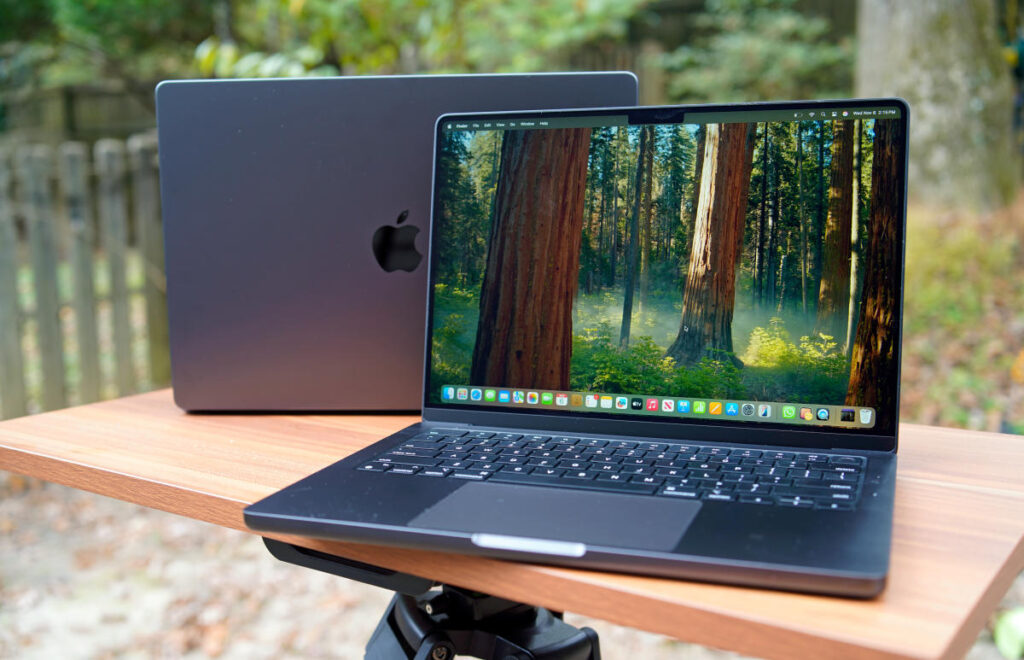Apple’s latest M4-powered MacBook Pro is a pretty stellar laptop. We gave it a score of 92 in our review, due in part to its great screen. The display is brighter this time around, peaking at 1,000 nits for SDR (standard dynamic range) content and 1,600 nits for HDR material. However, there’s another aspect of the screen about which Apple has strangely been keeping mum.
As noted by display expert Ross Young, Apple used a quantum dot (QD) film instead of a red KSF phosphor film on the display. “In the past, Apple went with the KSF solution due to better efficiency and lack of cadmium (Cd), but the latest Cd-free QD films are very efficient, feature as good or better color gamut and better motion performance,” Young explained. That means the latest MacBook Pro screen should offer a wider color range than in the past while making motion look smoother.
Big Apple display news, they have adopted quantum dots for the first time. The latest MacBook Pro’s (M4) use a quantum dot (QD) film rather than a red KSF phosphor film.
In the past, Apple went with the KSF solution due to better efficiency and lack of cadmium (Cd), but the… pic.twitter.com/5olq9lEHs9
— Ross Young (@DSCCRoss) November 14, 2024
Rather than being an early adopter itself, Apple often waits until technology has advanced to the point where it makes sense for the company to use it in products. Apple had considered using quantum dot tech in iMac displays at least as far back as 2015. But as TechRadar notes, cadmium is a toxic element and that would not have squared with Apple’s stated commitment to environmentalism efforts, so the company abandoned that idea. However, cadmium-free film now makes quantum dot tech more feasible for Apple.
Quantum dots aren’t exactly new. Other manufacturers have been using them in QLED TVs and monitors for many years at this point. QD-OLED panels are becoming more commonplace too. Apple is still using MiniLED backlighting in its MacBook Pros, but this could be a case of the company laying the groundwork for future QD-OLED MacBook Pro variants.
Engadget has contacted Apple for comment.


